Inhalants


What are they?
Inhalants are general household or industrial products that produce vapours that are then inhaled or breathed in. These items include (but are not limited to) cans of chrome spray, aerosol products like spray paint, petrol, glue, paint and paint thinners, cleaning fluid, gas for burning, nail polish remover and felt pens.
Inhalants are inhaled – pretty straightforward. The fumes and vapours from the various chemicals will cause different reactions within the body depending on what was inhaled. Some products use specific methods to inhale their vapours.
- Chroming is the process of spraying chrome spray paint into a plastic bag and inhaling the fumes from there.
- Petrol sniffers usually put a small amount of the liquid into a can and inhale from there.
- Those who inhale nitrous oxide (nangs) from gas cartridges usually by expelling the gas into a balloon first before inhaling it and exhaling it continuously from there.
What are the effects?
The effects of inhalants depend on the particular product being inhaled. The effects are experienced immediately and will last for around 45 minutes.
- Feelings of excitement and euphoria
- Fewer inhibitions
- Loss of coordination
- Dizziness
- Sneezing and coughing
- Watering eyes
- Running nose
- Nitrous oxide in particular can cause a feeling of lightness, floatiness, and delirium
- Irritability and depression
- Memory loss
- Reduced attention span and ability to think clearly
- Pimples around the mouth and lips
- Pale appearance
- Tremors
- Weight loss
- Reduced growth potential (height; in adolescents)
- Tiredness
- Excessive thirst
- Loss of sense of smell and hearing
- Problems with blood production, which may result in anaemia, irregular heartbeat, heart muscle damage
- Chest pain and angina
- Indigestion and stomach ulcers
- Liver and kidney damage
Many of these effects can be reversed when long-term use has ceased, but some inhalants can leave irreversible effects like brain and organ damage.
Overdose
If we inhale a substance repeatedly or if it’s a particularly strong inhalant, it’s possible to overdose. Knowing the signs of overdose helps keeps us and others safe, and when we might need to call an ambulance. Watch out for these symptoms and call 000 in an emergency:
Nausea, vomiting and diarrhoea
Irregular heartbeat
Chest pain
Hallucinations
Blackout, seizures and coma
It’s also possible to experience sudden sniffing death, some chemical’s vapours are so toxic that they can induce heart failure, particularly if someone has exercised prior or is quite stressed, but this is very rare.
Mixing with other drugs
The effects of mixing inhalants with other drugs – including over the counter or prescribed medications can be unpredictable and dangerous. As inhalants are different, the interactions of mixing them with other drugs will be different. To find out about drug interactions and inhalants, head to the Australian Drug Foundation.
HIV Medications
The interactions between inhalants and antiretroviral medications are not well known. There’s currently no evidence to suggest that inhalants directly reduce the efficacy of antiretroviral medications. If some new research comes to light, then we’ll update this section and let you know.
The interactions between inhalants and PrEP and PEP are not well known. There’s currently no evidence to suggest that inhalant use directly interacts with these medications or reduces their efficacy. We’ll keep looking and update you if any new research comes to light.
To learn about the interactions between specific HIV medications and alcohol head to Liverpool HIV Drug Interactions Checker.
Hormones
There’s currently no evidence to suggest that inhalant use directly reduces the efficacy of HRT. We’ll keep looking and update this information if something new comes to light.
The interactions between inhalants and HRT are not well known. Progesterone and Cyproterone Acetate can have sedative effects, so we may be particularly tired, fatigued or sleepy during or after taking inhalants.
For more information about Inhalants head to the Australian Drug Foundation.
DISCLAIMER:
The information given on this page is not medical advice and should not be relied upon in that way.